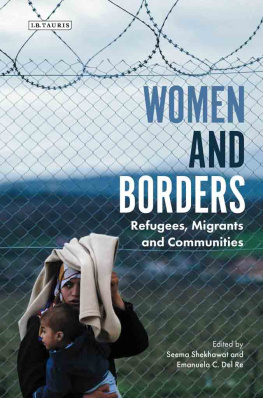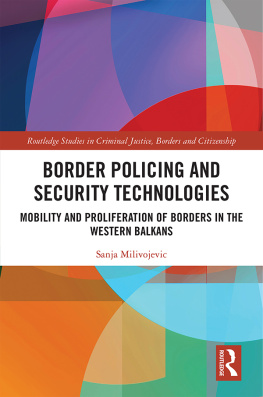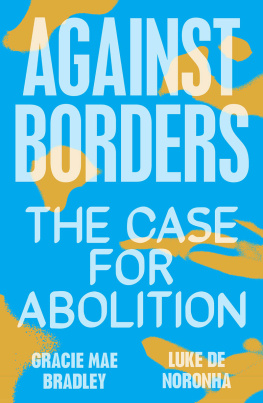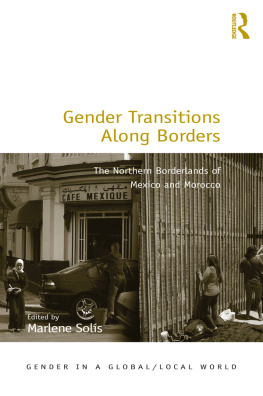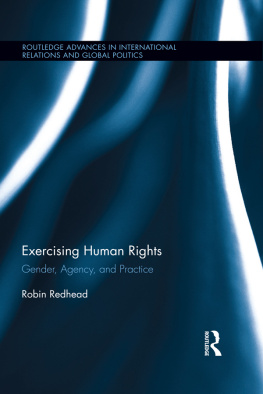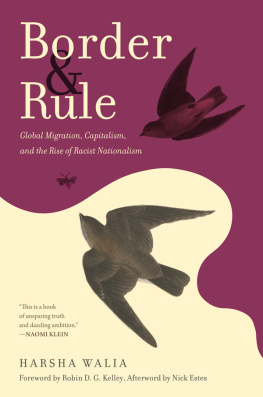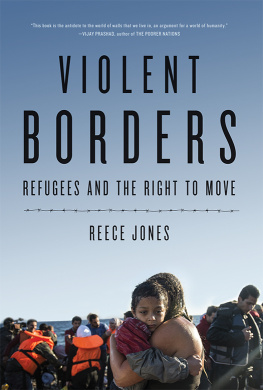Seema Shekhawat is a political scientist with a PhD on the intersection of gender, conflict and displacement. She has researched and taught at the Universities of Jammu and Mumbai, India and is the author of Gender, Conflict and Peace in Kashmir (2014) and editor of Female Combatants in Conflict and Peace (2015).
Emanuela C. Del Re is a tenured Professor of Political Sociology at the University Niccol Cusano of Rome. She is the chair and founder of EPOS International Mediating and Negotiating Operational Agency and creator of the My Future project for Syrian Refugees funded by the Italian Foreign Affairs Ministry and by the European Commission.
Borders affect all sections of the population, with multiple consequences for vulnerable sections, particularly women. State-centered bordering practices are highly restrictive and even discriminatory, targeting women in specific ways. The engagement of women with borders, contested or even settled, hence can be exploitative leading to victimization and alienation. Border regions are prone to violence towards women residing nearby, while crossing or even after crossing. This book, focusing on the intersection of gender and border, uses case studies featuring refugees and migrants and brings to the forefront a highly relevant issue of concern for academics, practitioners as well as policy makers. Through examining an array of related issues and developing further the innovative concept of gendered borders, this volume is certainly a great addition to the existing literature on the issue.
Padraig OMalley, John Joseph Moakley Distinguished Professor of Peace and Reconciliation, John W. McCormack Graduate School of Policy and Global Studies, University of Massachusetts, Boston

Contents
Seema Shekhawat, Debidatta Aurobinda Mahapatra and Emanuela C. Del Re
Emanuela C. Del Re
Leila Hudson
Vanessa Grotti, Cynthia Malakasis, Chiara Quagliariello, Nina Sahraoui andDaniela Arias Vargas
Melinda Wells, Suhail Abualsameed and Suse Prosser
Carolina Montenegro
Seema Shekhawat
Andreanne Bissonnette and Elisabeth Vallet
Olga Davydova-Minguet and Pirjo Pllnen
Debidatta Aurobinda Mahapatra
Duncan McDuie-Ra
In the post-Cold War globalized world, in which border violence, intrastate conflicts and consequent migration and refugee crises have become significant features, the discourse on the border and its intersection with gender is not confined to a particular geographical region. Rather, it has encompassed the whole world. Whether it is the conflict in the Middle East and the migration from the south to the north, or the violence in South Asia, including the India-Pakistan conflict in Kashmir, or the recent electoral debates on migration in the USA and Europe, the myriad nuances of the border practices and their intersection with gender have become increasingly perceptible. Though borders and gender have become increasingly prominent in policy debates, we feel their intersection have not been significantly analyzed. The current volume aims to fill this critical gap. Keeping in view the scarcity of literature on the intersection of borders and gender we decided to bring out this volume through carefully drawing case studies from different parts of the world. It may not be possible to include all case studies in a single volume, but we firmly hope that the select cases amply demonstrate the myriad nuances of the intersection of gender and borders, and argue that a fresh look at these nuances can help develop new frameworks to address the issues of border violence, migration and refugee crises, through crafting effective humane policies.
We are thankful to the International Mediating and Negotiating Operational Agency (EPOS) Rome, Italy, as this anthology could not have been possible without the financial support from this organization.
We would like to thank the contributors for agreeing to be part of this compilation. They enthusiastically participated in the project and abided by our schedule in delivering the chapters. We hope that their rich experience and insights from the field, as reflected in the chapters, will recast the traditional analyses on gender and borders. We are also thankful to the respondents, many of whom either lived in the borderlands or crossed the borders and negotiated violence, for providing valuable insights. We dedicate this book to these respondents and other women who negotiate with borders as border residents or transient communities. Their rich narratives, which have been featured in this volume, bring into focus many hitherto underemphasized and underresearched aspects of borders, conflict and violence, and provide an alternative humane lens to look at their intersection.
We are thankful to our lovely families. Without their support and encouragement, this volume could not have seen the light of day.
Finally, we are thankful to Lester Crook, our commissioning editor from I.B.Tauris, and his team for making the publication process smooth.
Seema Shekhawat (Florida, USA)
Emanuela C. Del Re (Rome, Italy)
Suhail Abualsameed has 15 years of experience in gender, sexual and gender-based violence, project coordination, cross-cultural education and community-based research. He has a thorough knowledge on issues faced by diverse populations and minority groups with respect to gender and equity and extensive experience on refugees and migration, sexuality, and cultural competency. Abualsameed has worked in the Middle East and southern Europe designing and delivering capacity building and training initiatives linked to the current refugee crisis, as well as situation analysis and support on policy, program and service delivery levels.
Andreanne Bissonnette is a graduate student in political science majoring in womens studies at the University of Quebec in Montreal. She is a research fellow at the Raoul Dandurand Chair in strategic and diplomatic studies. Her research interests are the impact of the securitization of borders and changes in migration policies on migrant women mainly on the Mexican-American border. She has published papers on immigration in the US in Relations (May 2016) and Diplomatie (October 2016) and is a co-author of LEffet 11 septembre, 15 ans aprs (April 2016).
Vanessa Grotti is a part-time professor at the European University Institute, where she leads the EU Border Care project, funded by an ERC Starting Grant. She is an anthropologist interested in the study of health and healthcare systems, migration and borderlands, gender and minority rights, especially in contexts of social change and crisis. Over the last 13 years, she has worked in South America, Europe and West Africa. She was trained at Cambridge University and has held research and teaching positions at the Collge de France, the London School of Hygiene and Tropical Medicine, and Oxford University.
Leila Hudson is Associate Professor in the School of Middle Eastern and North African Studies at the University of Arizona. An anthropologist and historian, she is the author of Transforming Damascus: Space and Modernity in an Islamic City (I.B.Tauris, 2008), Middle Eastern Humanities: An Introduction to Cultures of the Middle East (2010), and

